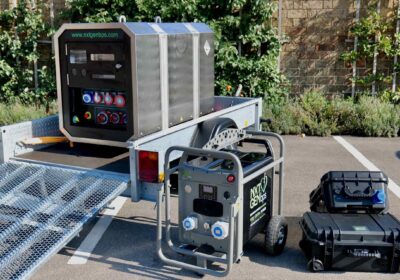
Definition Magazine Roundtable: Batteries
NXTGENbps featured in Definition Magazine’s recent roundtable, where industry leaders explored the evolving landscape of battery technology in film and TV production. Our Director of Sustainability and Business Development, Lesley Marr, joined other experts to…
(read more)


